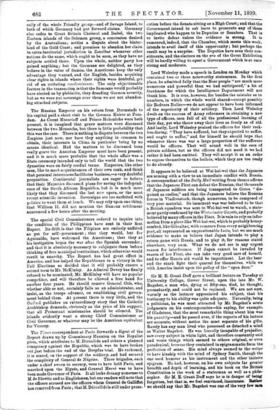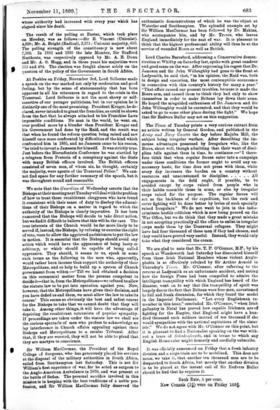Sir M. E. Grant Duff gave a brilliant lecture on
Tuesday at University College, Gower Street, upon the late Mr. W. Bagehot, a man who, dying at fifty-one, died, he thought, prematurely, and could not be replaced. We are not sure, warmly as the lecturer appreciated his subject, that his testimony to his ability was quite adequate. Naturally, being a politician, he was most attracted by Mr. Bagehot's acute judgments on his contemporaries—his saying, for example, of Gladstone, that the most remarkable thing about him was his quantity—and he passed over, if the reports of his lecture are accurate, without notice the most separate of his gifts. Rarely has any man lived who possessed as detached a mind as Walter Bagehot. He was literally incapable of prejudice, saw every subject in white light, and therefore constantly said and wrote things which seemed to others original, or even paradoxical, because they contained in epigrammatic form the perfection of sense. His mind always seemed to the writer to have kinship witb the mind of Sydney Smith, though the one used humour as his instrument and the other incieive epigram. He had, however, on his own subjects far greater breadth and depth of learning, and his book on the British Constitution is the work of a statesman as well as a philo- sopher. Sir M. E. Grant Dail says he is in danger of being forgotten, but that is, we feel convinced, inaccurate. Bather we should say that Mr. Bagehot was one of the very few men
whose authority had increased with every year which has elapsed since his death.











































 Previous page
Previous page